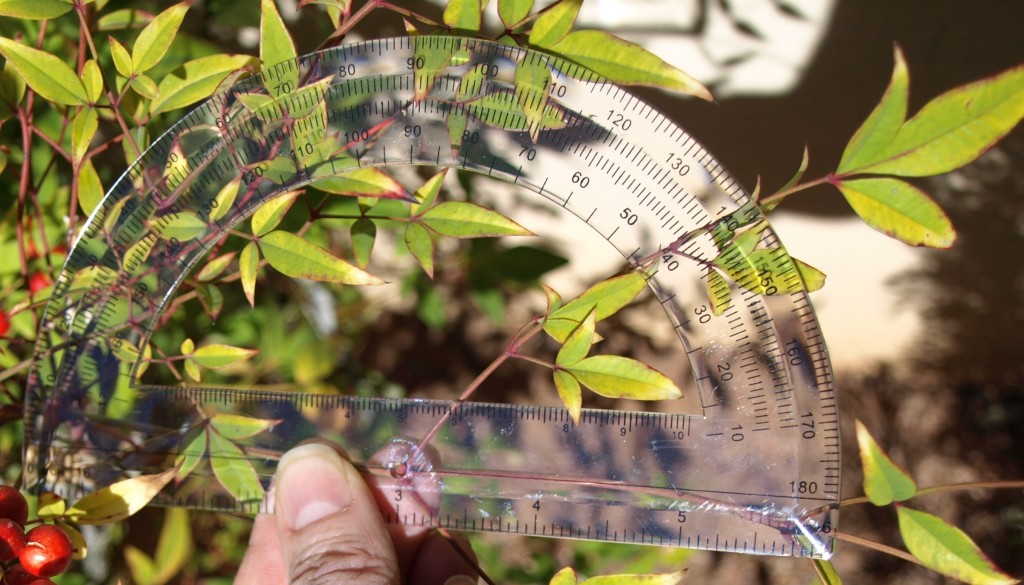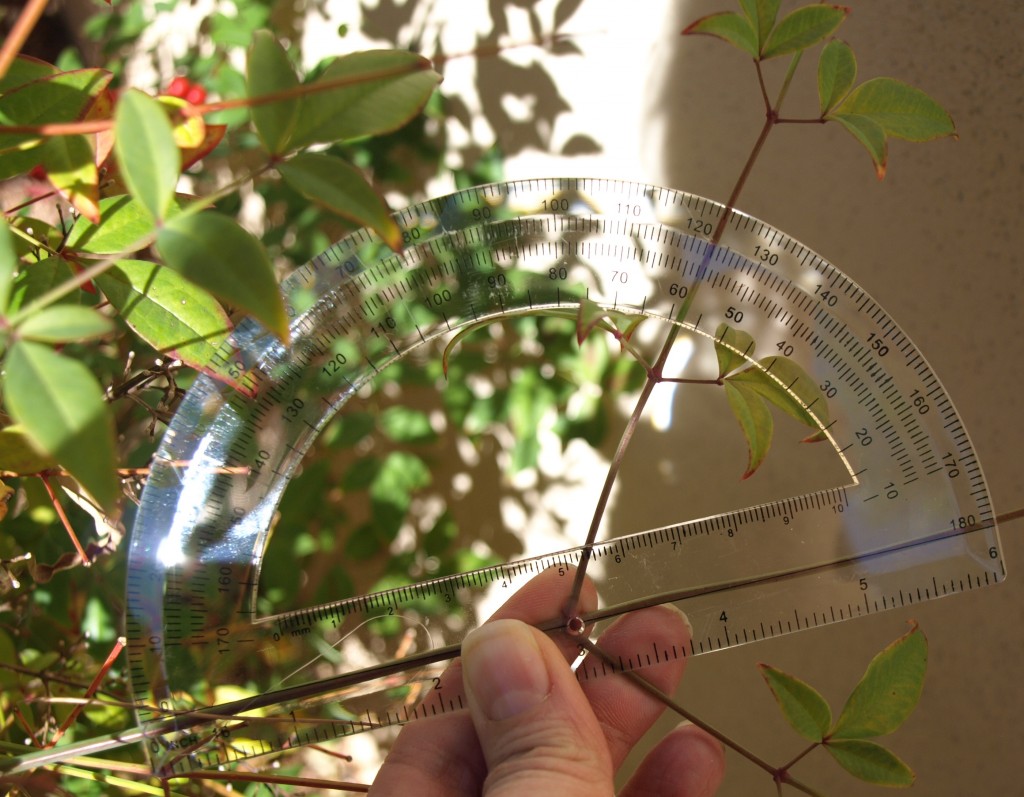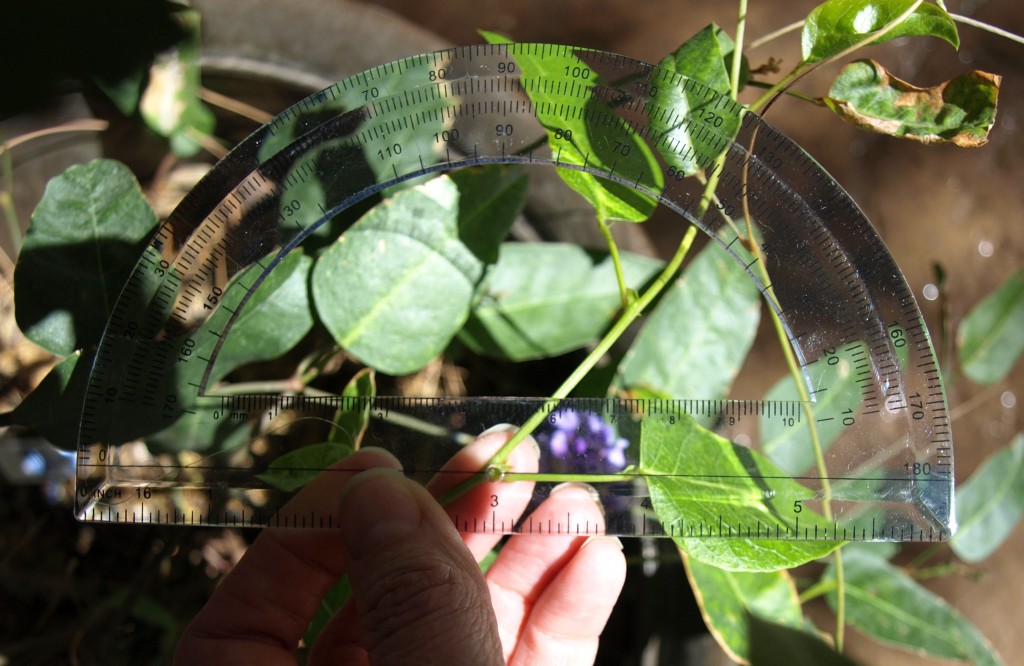Finding a way to take learning outside is something that the children seem to always enjoy. So why not a geometry lesson? I was introduced to a book called Math in the Garden a few years back and one of my favorite geometry lessons came from that book.
The idea was to find be able to apply concepts they were learning in geometry in the real world, in their environment. We had done this before inside the classroom, having students find the various types of angles in the objects around the room. They found right angles where the wall met the ceiling, where the table legs met the table tops, in books, and so on. This time, we were going to find angles in the garden.
Armed with protractors, pencils, and notebooks, we set off to look at various plants. Low and behold, there were angles in those plants! Using protractors, students measured angles that they found on various plants, usually using the stem as one side of the angle. Then they recorded what they found in their notebooks. Back in the classroom they reflected on the data, recalling what types of angles they discovered (acute, right, or obtuse? complementary or supplementary?) and if there were more of one type than another.
Overall, it was a positive experience and an opportunity to find examples of geometry in the natural world.

Related articles:
Botany resources for classroom use
Botany studies in the classroom using Wisconsin Fast Plants



